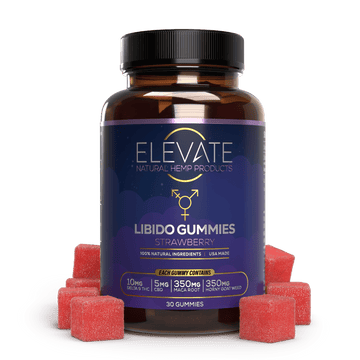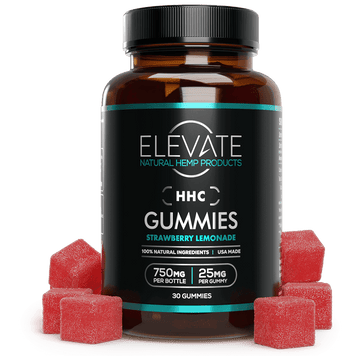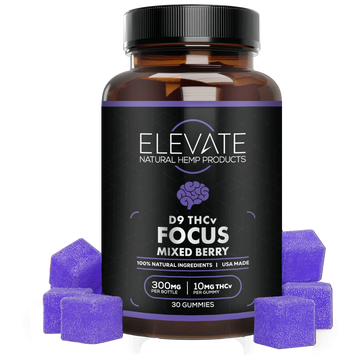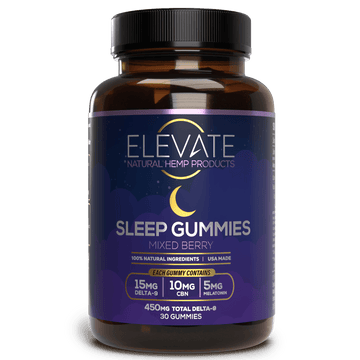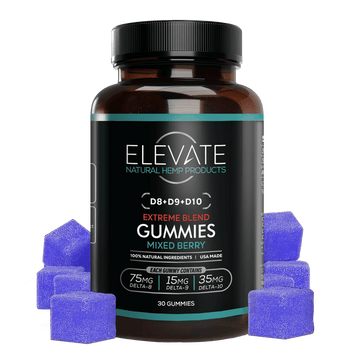Is THCA in Texas Legal? What the Law Says

THCA Legal Status in Texas:
THCA is currently legal in Texas when derived from hemp containing less than 0.3% Delta 9 THC. However, Texas law is evolving, and enforcement varies. Purchase from reputable vendors with lab testing to verify compliance. Keep COAs with your products.
The main difference between a relaxing afternoon and a legal headache can come down to a single molecule. In the cannabis plant, that molecule is often THCA. It’s the parent compound to the well-known THC, but it doesn't cause a high until it's heated. This simple scientific fact is the cornerstone of its legality. When you buy THCA flower, you're purchasing a product that is legally considered hemp. This guide will walk you through the science of decarboxylation—the process that turns THCA into THC—and explain how this transformation shapes the entire legal framework for THCA Texas, helping you make confident and educated choices.
Key Takeaways
- Understand the Legal Loophole: THCA is legal in Texas because laws specifically regulate Delta-9 THC content. Since raw THCA products contain less than 0.3% Delta-9 THC, they are considered legal hemp, even though heating them converts the THCA into psychoactive THC.
- Always Vet Your Source: The most important step for a safe experience is verifying a product's Certificate of Analysis (COA). Only purchase from brands that provide up-to-date, third-party lab reports to confirm a product is both legally compliant and free of contaminants.
- Remember That Heat Is the Switch: In its raw state, THCA is non-psychoactive and offers its own potential wellness benefits. Applying heat through smoking, vaping, or cooking is what activates its conversion into THC and produces the familiar psychoactive effects.
What Exactly is THCA?
Before we get into the legal side of things, let’s clear up what THCA actually is. THCA, or tetrahydrocannabinolic acid, is a natural compound found in raw and live cannabis plants. Think of it as the parent molecule to THC. In its original state, THCA is non-psychoactive, meaning it won’t produce the “high” typically associated with cannabis. It’s only when THCA is exposed to heat that it transforms into the familiar, psychoactive THC.
This distinction is at the very heart of the legal debate in Texas and across the country. Because raw cannabis flower is rich in THCA but low in THC, it occupies a unique space in the law. Understanding this fundamental difference is the first step to making informed choices about the products you use and how you use them. It helps explain why you can find THCA products on shelves and what happens when you take them home.
A Quick Look at the Science
While most of the buzz is around THC, scientists are increasingly interested in what THCA can do on its own. Early research suggests that THCA has its own set of potential therapeutic benefits. Studies are exploring its anti-inflammatory and neuroprotective properties, which means it could help reduce inflammation and protect nerve cells from damage. Although the research is still in its early stages, these findings point to THCA being more than just a precursor to THC. It’s a unique cannabinoid with its own promising potential for wellness, separate from any psychoactive effects.
THCA vs. THC: What's the Difference?
The main difference between THCA and THC comes down to a tiny group of atoms and a big change in effects. THCA has an extra carboxyl group in its chemical structure that THC doesn't. This small addition is what prevents THCA from binding to the brain's receptors and causing a high. While THC is known for its psychoactive effects, THCA is gaining attention for its own potential therapeutic qualities, including anti-inflammatory and antiemetic (anti-nausea) effects. So, while they are closely related, they interact with your body in fundamentally different ways unless heat is applied.
How Heat Unlocks THC
So, how does the non-psychoactive THCA become psychoactive THC? The transformation happens through a process called decarboxylation, which is just a scientific way of saying "adding heat." When you smoke, vape, or cook cannabis, the heat removes that extra carboxyl group from the THCA molecule. This chemical change converts it into THC, the compound that produces euphoric effects. This is why eating raw cannabis flower won’t get you high, but smoking it or baking it into edibles will. This simple act of heating is what activates the plant's psychoactive potential and is a critical factor in how THCA products are regulated.
Is THCA Legal in Texas?
The legal status of THCA in Texas can feel a bit confusing, but it all comes down to the details in the law. Here’s a straightforward breakdown of what you need to know about buying, possessing, and using THCA products in the Lone Star State.
What Current Texas Law Says
Texas law aligns with federal regulations, which means THCA is legal in the state as long as it is derived from hemp and the final product contains less than 0.3% Delta-9 THC by dry weight. This is possible because the law specifically measures the concentration of Delta-9 THC, the main psychoactive compound in cannabis. Since THCA is a different cannabinoid in its raw form, products rich in THCA can be legally sold as hemp. This distinction is what allows Texans to access these products, which are legally separate from marijuana under state and federal definitions.
Federal vs. State Rules: A Quick Comparison
The 2018 Farm Bill set the federal standard by legalizing hemp, defining it as any cannabis plant with 0.3% or less Delta-9 THC. Texas adopted this same definition, creating consistency between state and federal rules. In its natural state, THCA is not a controlled substance. The legal gray area appears because THCA converts into Delta-9 THC when heated through a process called decarboxylation. However, for testing and compliance purposes, the law focuses on the product's chemical profile at the point of sale. As long as the product tests below the legal Delta-9 THC limit, it is considered a legal hemp product.
Guidelines for Possession
If you have THCA products in Texas, the key is to confirm they are hemp-derived and meet the legal requirement of containing less than 0.3% Delta-9 THC. To stay on the safe side, it’s a good practice to keep your products in their original packaging. Reputable brands will include a QR code on the label that links to a Certificate of Analysis (COA), which is the official lab report. Having this documentation handy can help verify the product's legality. When you shop for cannabis products, prioritize companies that provide these reports, as it demonstrates their commitment to transparency and legal compliance.
Rules for Buying and Selling
When you’re looking to buy THCA, always go with a reputable seller. Trustworthy brands are transparent about their sourcing and provide up-to-date, third-party lab results for all their products. These COAs are essential, as they confirm the exact cannabinoid percentages and ensure the product is free from harmful contaminants. If a seller is hesitant to share a lab report, consider it a red flag. This level of quality control is what separates reliable products from the rest of the market, whether you're buying THCA flower or exploring other options like Delta 8 gummies.
How THCA is Tested and Enforced in Texas
Understanding how Texas handles THCA testing and enforcement is key to using these products confidently. The process isn't always straightforward, and the rules can feel a bit murky. From official lab procedures to the limitations of on-the-spot tests, knowing the landscape helps you stay informed and make smart choices. Let's walk through what you need to know about how these laws are applied in practice.
The Official Lab Testing Process
When it comes to official testing, Texas doesn't just look at the Delta-9 THC content in a product. State regulations require a more thorough approach. The Texas Department of State Health Services (DSHS) has established rules for testing and labeling that account for the potential conversion of THCA into Delta-9 THC. This is called "total THC" testing, which measures the total amount of Delta-9 THC that could be present after heating. This means labs calculate the final THC concentration to ensure it doesn't exceed the 0.3% legal limit, making the testing process quite strict for producers.
Why Enforcement Can Be Tricky
Even with official testing rules in place, enforcing them across the state is a challenge. The 0.3% THC limit has not been strongly enforced consistently. It's difficult and costly for law enforcement agencies to conduct the sophisticated lab tests needed to verify the exact THC content of every product on the market. This creates a bit of a gray area where some products might not be fully compliant. For consumers, this means it's extra important to buy from reputable brands that are transparent about their lab results and committed to following the rules.
The Problem with Field Tests
One of the biggest risks for consumers comes from the limitations of police field tests. These standard tests can detect the presence of THC, but they can't tell you how much there is or what kind it is. They can't distinguish between legal THCA, Delta-8, or illegal Delta-9 THC. This lack of nuance means that possessing a perfectly legal THCA product could still result in a positive field test, potentially leading to you being wrongly arrested. It’s a frustrating reality that highlights the gap between the law and the technology used to enforce it.
Navigating the Legal Gray Areas
So, where does that leave you? Currently, THCA is legal in Texas as long as it's derived from hemp and the final product contains less than 0.3% Delta-9 THC by dry weight. This is often called a legal "loophole" because THCA itself isn't a controlled substance in its raw form. However, the moment you heat it and it converts to Delta-9 THC, it falls under much stricter regulations. This dual status is the core of the legal gray area. Always keep your product in its original packaging and have lab reports handy to show its legal THCA content.
Potential Benefits of THCA
While the conversation around THCA often centers on its legal status and its relationship to THC, it’s also gaining attention for its own unique potential benefits. In its raw, unheated form, THCA is non-psychoactive, meaning it won’t produce a "high." This has made it a fascinating subject for researchers and wellness enthusiasts alike. The science is still in its early stages, but initial findings point to several promising areas where THCA might offer support for the body and mind. From soothing properties to protective effects, the potential of this cannabinoid is just beginning to be understood, offering a different way to think about the cannabis plant.
Easing Inflammation
One of the most talked-about potential benefits of THCA is its ability to help ease inflammation. Think of it as the cannabis plant's raw soothing agent. Research suggests that THCA has anti-inflammatory properties, which could be helpful for a wide range of issues rooted in chronic inflammation. Because it works without the psychoactive effects of THC, it offers a unique option for those seeking relief during their workday or whenever they need a clear head. While more studies are needed to fully understand how it works, the initial evidence is a big reason why so many people are curious about incorporating raw cannabis or THCA products into their wellness routines.
Aiding in Pain Management
Where there’s inflammation, there’s often pain, so it’s no surprise that THCA is also being explored for its role in pain management. By targeting inflammation, THCA may help reduce the discomfort that comes with it. Some studies indicate that THCA could have analgesic, or pain-relieving, effects. This makes it an interesting alternative for people looking for plant-based options to manage everyday aches and pains without the intoxicating effects of THC. If you're exploring cannabinoids for general wellness, understanding how compounds like THCA and CBD work differently can help you find the right fit for your goals.
Supporting Brain Health
Beyond physical relief, some of the most exciting research around THCA involves its potential to support brain health. Studies have shown that THCA has neuroprotective qualities, meaning it may help protect brain cells from damage and degeneration. Researchers are looking into how these properties could be beneficial for managing neurodegenerative conditions. For instance, one study found THCA to be a potent neuroprotectant. This research opens up a whole new world of possibilities for how cannabis compounds could play a role in long-term brain wellness, offering a proactive way to care for one of our most vital organs.
Other Promising Research
The potential benefits of THCA don’t stop there. Early research also points to its antiemetic properties, which could help reduce nausea and vomiting, making it a subject of interest for those dealing with appetite loss. Some studies have also explored its role in slowing the proliferation of certain harmful cells. As scientists continue to study this cannabinoid, we’re likely to uncover even more ways it can support our health. From calming the body to protecting the brain, THCA is proving to be a versatile and powerful compound. If you're curious about the wide world of cannabinoids, you can shop all products to see the variety available.
Your Guide to Using THCA Safely
Navigating the world of THCA can be exciting, but it’s also important to be a smart and safe consumer. Because the market is relatively new, the quality of products can vary quite a bit from one brand to the next. The best way to ensure you have a positive experience is to know what to look for and how to properly handle your products. It’s all about doing a little homework upfront to find a brand you can trust. Taking a few extra minutes to check for lab reports and read labels can make all the difference. Think of it as setting yourself up for success. By following a few simple guidelines, you can confidently choose high-quality, effective, and compliant THCA products. We’ll walk through exactly what you need to know, from verifying product quality to storing it correctly, so you can feel secure in your choices.
How to Verify Product Quality
The single most important factor in verifying product quality is third-party lab testing. Reputable companies will always send their products to an independent lab to get a Certificate of Analysis, or COA. This document breaks down the exact cannabinoid content, confirming that the product is legally compliant with the 0.3% Delta-9 THC limit. It also screens for harmful contaminants like pesticides or heavy metals. If a brand doesn’t make its COAs easily accessible on its website, consider it a major red flag. When you shop for products, always look for that link to the lab results before you even think about adding something to your cart.
What to Look For on the Label
Once you’ve confirmed a product has a COA, the next step is to check the label. Clear, informative labeling is a sign of a trustworthy brand. The label should clearly state the total amount of THCA and other cannabinoids per serving and per package. Look for a batch number and an expiration date, which show the company tracks its production for quality control. Many products will also have a QR code you can scan to pull up the COA for that specific batch. This transparency is key, as Texas health departments are pushing for clearer rules on testing and labeling to ensure consumers know exactly what they’re getting.
The Best Way to Store Your Products
How you store your THCA products matters more than you might think. THCA is sensitive to heat and light, which can cause it to convert into THC. To preserve its potency and prevent degradation, you should always store your products in a cool, dark, and dry place. An airtight container, like a glass jar, is perfect for keeping flower fresh. Keep it in a cabinet or drawer, away from any windows or appliances that generate heat. Proper storage not only maintains the quality of your product but also ensures it remains legally compliant by preventing the THCA from converting into Delta-9 THC.
Why You Should Keep Your Documentation
Given the complex and sometimes confusing legal landscape in Texas, it’s a smart move to keep your receipts and any documentation that comes with your THCA products. This includes the COA or lab report. If you ever find yourself in a situation where you need to prove your product is a legal hemp derivative, this paperwork is your best evidence. It shows you made a good-faith effort to purchase a compliant product from a legitimate source. While it’s unlikely you’ll need it, having your documentation on hand provides an extra layer of security and peace of mind, especially since the risks of possessing THC can be significant.
Finding THCA Products in Texas
Since THCA is legally available in Texas, you have a few different options for trying it. The right product for you really depends on your preferences and experience level. From raw flower to convenient edibles, the market offers a variety of ways to explore what THCA has to offer. Understanding the different forms can help you make a confident and informed choice.
Raw Hemp Flower
If you prefer a more traditional experience, THCA flower is a great place to start. This is simply raw, unheated hemp flower that is widely available across Texas. Because it hasn't been heated, the THCA hasn't converted into THC, keeping it compliant with state law. It’s the most natural form of the plant, offering rich aromas and flavors from its terpene profile. Most people smoke or vaporize THCA flower, which heats the compound and provides the desired effects. You can find a wide variety of strains, each with its own unique characteristics, in our full collection of products.
Concentrates and Extracts
For those with more experience, THCA concentrates might be the way to go. These products, which include things like wax, shatter, and live resin, are known for their high potency. They are created by extracting the THCA from the plant, resulting in a much more concentrated form. Because they are so strong, they’re generally recommended for seasoned users who understand their tolerance levels. Concentrates are typically consumed using a dab rig or a specialized vaporizer designed for extracts. This method delivers a powerful and fast-acting experience for those looking for immediate effects.
Tinctures and Edibles
If smoking or vaping isn’t your thing, you’re in luck. THCA-infused edibles, beverages, and tinctures are becoming more and more popular in Texas. These products offer a discreet and convenient way to consume THCA without any smoke. Tinctures are liquid extracts you can take under your tongue for quick absorption, while edibles provide a pre-measured dose in a tasty format. While the THCA market grows, you can also explore other popular hemp-derived edibles, like our Delta 9 Gummies, which offer a reliable and enjoyable experience.
What to Know About Product Testing
No matter which product you choose, always prioritize safety and quality. Reputable brands will provide third-party lab test results, often called a Certificate of Analysis (COA). This document is crucial because it verifies the cannabinoid content of the product. You can use it to confirm the amount of THCA and, most importantly, to ensure the Delta-9 THC level is at or below the legal 0.3% limit. Remember, THCA is legal in its raw form, but it falls under stricter rules once it becomes THC. Always check for a COA before you buy to ensure you’re getting a safe, legal, and high-quality product.
How THCA Compares to Other Cannabinoids
The world of cannabis can feel like learning a new language, with a whole alphabet of compounds like THC, CBD, THCA, and more. Each one interacts with your body differently, offering a unique set of effects and benefits. Understanding these differences is key to finding the right product for your wellness goals, whether you're looking for relaxation, focus, or something else entirely. Let's break down how THCA stacks up against some of the other popular cannabinoids you'll find on the market.
THCA vs. CBD
Think of THCA and CBD as cousins in the cannabis family—they share some traits but have very different personalities. The biggest distinction is that CBD (cannabidiol) is completely non-psychoactive, meaning it won’t produce a "high." It's known for its calming and balancing effects, which is why so many people use CBD gummies for daily wellness.
THCA, on the other hand, is the raw, non-psychoactive precursor to THC. While it won't get you high on its own, research suggests it has its own potential therapeutic properties, including anti-inflammatory and neuroprotective qualities. So, while both can support your well-being without intoxication in their natural states, only THCA has the potential to become psychoactive when heated.
THCA vs. Delta-8 and Delta-9
This is where things get interesting, especially when it comes to effects and legality. Delta-9 THC is the primary psychoactive compound in cannabis—it's what most people associate with the classic high. Because of its potency, products containing more than 0.3% Delta-9 THC by dry weight are federally illegal.
THCA is the direct precursor to Delta-9. When you smoke or vape THCA flower, that heat converts it into potent Delta-9 THC. Delta-8 THC is a different cannabinoid that is also psychoactive, but users often describe its effects as milder and more clear-headed than Delta-9. Like THCA, Delta-8 gummies are legal under the Farm Bill as long as they contain less than 0.3% Delta-9 THC.
Other Popular Hemp-Derived Options
Beyond the big names, there's a whole world of other hemp-derived cannabinoids gaining popularity, each with its own unique profile. For instance, HHC is a hydrogenated form of THC known for its long-lasting and relaxing effects. Then there's THCV, a fascinating compound sometimes called "diet weed" because some users find it suppresses appetite and provides an energetic, focused feeling. You can find these in products like THCV gummies. As the industry grows, you'll see more innovative products hitting the shelves, from THCA-infused edibles to specialized tinctures designed for specific effects.
Important Legal Distinctions
The legal status of all these compounds hinges on one key detail: the 2018 Farm Bill. This federal law legalized hemp and its derivatives, as long as they contain less than 0.3% Delta-9 THC by dry weight. This is why THCA is currently legal in Texas and many other states. In its raw, unheated form, a THCA product can have a very high concentration of THCA but still be legally compliant because its Delta-9 THC level is below the legal threshold. This legal nuance is what allows for the sale and possession of THCA products.
What's Next for THCA in Texas?
The conversation around THCA and other hemp-derived cannabinoids in Texas is constantly evolving. While these products are currently accessible under state law, lawmakers and industry advocates are always discussing the future. For anyone who enjoys THCA products, it’s smart to stay aware of what might be on the horizon. The legal landscape is dynamic, and understanding the potential shifts can help you continue to make informed and confident choices about the products you use. Let's look at the key discussions, trends, and hurdles that are shaping the future of THCA in the Lone Star State.
Potential New Laws on the Horizon
It’s no secret that some Texas lawmakers are looking to tighten the rules around hemp-derived products. Officials like Senator Charles Perry have expressed a desire to close what they see as "loopholes" in the current hemp laws. The main goal of these proposed changes is to align state regulations more closely with federal standards and increase oversight. While no new laws have passed recently, the conversation is ongoing. These discussions could eventually lead to new requirements for testing, labeling, or age verification for products containing cannabinoids like THCA. Staying informed on these legislative efforts is key to understanding how the market might change in the coming years.
Current Industry Trends
Right now, the demand for THCA in Texas is strong and growing. One of the most sought-after products is THCA flower, which is essentially hemp that, when heated, provides an experience very similar to traditional cannabis. But the innovation doesn't stop there. You can now find a wide variety of other THCA-infused products, including tasty edibles, convenient tinctures, and even beverages. This expansion shows that consumers are looking for different ways to incorporate THCA into their wellness routines. As the market matures, you can expect to see even more creative and high-quality products become available, giving you more options than ever.
Ongoing Legal Hurdles
The legal status of THCA in Texas exists in a bit of a gray area, which creates some ongoing uncertainty. Its legality currently hinges on a specific detail in the law: as long as a product is derived from hemp and contains less than 0.3% Delta-9 THC by dry weight, it's considered legal. This is the "loophole" that allows for the sale of THCA. In the past, there have been efforts to ban these products, but so far, they have not succeeded in the state legislature. This means that for now, the status quo remains, but the debate continues, leaving producers and consumers to watch for any new developments.
How Future Changes Could Affect You
So, what does all this mean for you? For the time being, not much has changed. Since recent legislative sessions ended without passing new bans, THCA and other hemp-derived THC products are still legal to buy in Texas. Even Governor Greg Abbott has indicated a preference for regulation over an outright ban, with a focus on keeping products out of the hands of children. Future changes could look like stricter age gates, more detailed packaging rules, or specific marketing guidelines. The best thing you can do is stay connected with trusted brands and news sources to keep up with any new regulations that may be introduced.
Related Articles
- Is THCA Legal in Texas? What to Know Now
- Is THCA Legal in Texas? 2025 Laws & Rules Explained
- Is THCA Legal in Texas? The 2025 Law Explained
- Is THCA Legal in Texas? Laws & Rules Explained 2025
- Is THCA Legal in Texas (2025)? Laws & Hemp Rules Explained
Frequently Asked Questions
So, is THCA just a legal way to get high in Texas? In a way, yes, but the distinction is important. THCA itself is non-psychoactive, meaning in its raw form, it won't produce a high. The legality of THCA products is based on this raw state, where the Delta-9 THC content is below the 0.3% legal limit. However, when you apply heat by smoking, vaping, or cooking it, the THCA converts into Delta-9 THC, the compound that does cause a high. This conversion is the key to its effects and the reason it occupies a unique legal space.
Will using THCA products make me fail a drug test? You should assume that it will. Standard drug tests are designed to detect THC metabolites in your system, and they don't distinguish between THC that came from a legal hemp product and THC from marijuana. Since heating THCA converts it into Delta-9 THC, your body will process it just the same. If you are subject to drug testing for any reason, it is best to avoid THCA products entirely.
What's the real difference between THCA and Delta-9 THC? The simplest way to think about it is that THCA is the parent compound to Delta-9 THC. In the raw cannabis plant, you find a lot of THCA and very little Delta-9 THC. THCA has a different chemical structure that prevents it from causing a high. When you add heat, that structure changes, and it becomes the familiar, psychoactive Delta-9 THC. So, one is the raw potential, and the other is the activated result.
How can I be sure the THCA product I'm buying is actually legal and safe? The most reliable tool you have is the Certificate of Analysis, or COA. Any trustworthy company will provide up-to-date, third-party lab reports for their products, usually accessible via a QR code on the packaging. This report confirms the exact cannabinoid levels, proving the Delta-9 THC is under the 0.3% legal limit. It also screens for harmful contaminants. If a seller can't provide a COA, you should not buy from them.
If I have a legal THCA product, could I still get in trouble with the police? Unfortunately, there is a risk due to the limitations of law enforcement technology. Standard police field tests can't differentiate between legal, hemp-derived THCA and illegal marijuana, as they often just test for the presence of any THC. This could lead to a misunderstanding or even a wrongful arrest. To protect yourself, always keep your THCA products in their original packaging and have the lab reports accessible to prove their legal contents.
Join Our Newsletter
Sign up to be the first to know about our can't-miss product drops, special VIP offers & exclusive discounts.

